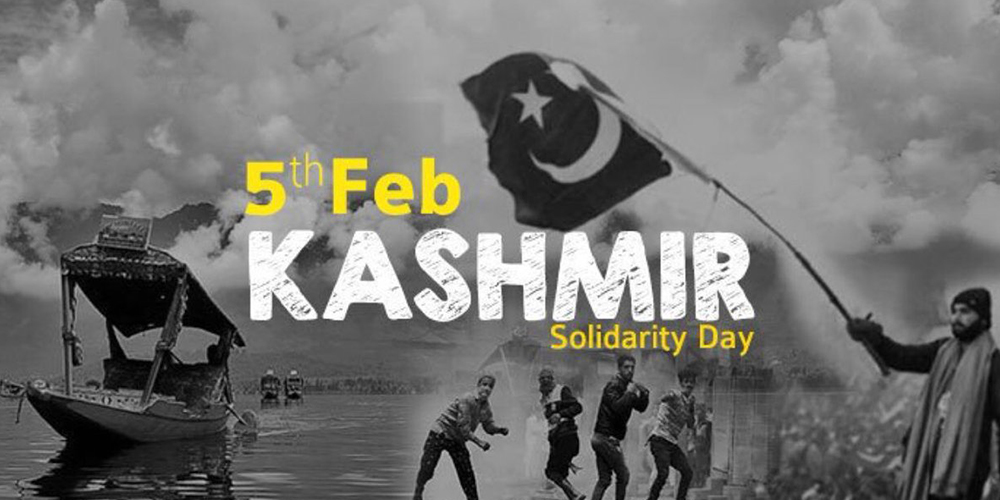Introduction
In Pakistan, Kashmir Day is known as “Kashmir Solidarity Day.” On February 5, Pakistan commemorates Kashmir Day. In Pakistan, the day is also known as Kashmir Solidarity Day. The day was originally commemorated in 1990 by Punjab Chief Minister Nawaz Sharif, who called on political and religious leaders to observe February 5 as Kashmiri Solidarity Day. Kashmiris have been protesting Indian brutality in Kashmir since then. In addition, it was an appeal for worldwide acknowledgment of the Kashmiri people’s legitimate rights to self-determination.
Our blog Pakistani event will provide in-depth information on Kashmir, including why people commemorate Kashmir Day and what Pakistanis must do to make Kashmir a part of the country.
How did Pakistan’s Kashmir Day begin?
Every year on February 5, Pakistan commemorates Kashmir Day in solidarity with the people of Indian-administered Kashmir. Since 1989, they have been in a running battle with the Indian government. In 1990, Punjab Chief Minister Nawaz Sharif convened political and religious leaders’ meetings to commemorate February 5 as Kashmiri Solidarity Day. Consequently, in the same year, the Pakistani government designated the day Kashmir Solidarity Day.
India and Pakistan are often at odds. Pakistan commemorates Kashmir Day to show solidarity for Kashmiris seeking independence from India. Pakistan is a strong supporter of the Kashmiris, and marches are staged in several places throughout the country on Kashmir Day. Kashmir Day is one of Pakistan’s most significant celebrations since it draws the whole country together to support Kashmir’s independent warriors. The major goal of the day was to demonstrate to the world community that Pakistan is committed to resolving the Kashmir problem. The day is commemorated in all of Pakistan’s main cities. Free Kashmir Day poetry, quotations, and a banner are also available on pakistanevent.com.
Who took part in the Kashmir Solidarity Day?
For all Pakistanis, Kashmir Solidarity Day was a day of joy. Pakistan’s governing party, the Convention Muslim League, proclaimed a public holiday. The Indian Prime Minister, Lal Bahadur Shastri, designated a day of mourning. Pakistanis commemorated the day in honor of the martyrs who died in Indian-controlled Kashmir. Pakistanis conducted demonstrations and prayer sessions to show their support for the Kashmiri liberation cause. On the eve of the day, the Pakistani government held a military parade in Islamabad, the country’s capital. In Pakistan’s capital city, Islamabad, the governing party (Convention Muslim League) held a rally. Field Marshal Ayub Khan, Pakistan’s then-President, led the gathering. The day was also marked in Azad Kashmir and other parts of the country. The day was also commemorated in places of the globe where Kashmiris dwell. For more information about Kashmir Day, visit the Pakistan event.
What are the many slogans associated with Kashmir Solidarity Day?
On February 5, the Kashmir Solidarity Day commemorates the first time thousands of people assembled in Srinagar’s major city to oppose India’s authority in Kashmir. The Kashmiri independence struggle had barely begun at a time when the whole world was watching attentively. However, the Kashmiri independence struggle continued for a long time beyond the conclusion of the day until Indian Prime Minister Rajiv Gandhi signed a statement with the Pakistani government in Delhi on July 19, 1985, known as the “Shah-e-Azam” proclamation.
How did Pakistan get involved in the Kashmir conflict?
Kashmir is a hilly area that India and Pakistan claim as contested territory. India and Pakistan both claim the whole territory. Kashmir is South Asia’s northernmost geographical area, now partitioned between India and Pakistan. The Republic of Kashmir also claims the land. The area is one of the world’s most militarized. Since India’s division, Kashmir has been the source of political tensions between Pakistan and India.
After India’s division, Pakistan became the proponent of the Kashmir problem. Before partition, Muslims in undivided India backed the Muslims of the princely state of Kashmir against the Hindu king of Kashmir because they wanted Kashmir to join Pakistan once India and Pakistan split apart. As a result, the Muslim League assured Muslims in the princely state of Kashmir that if they chose to join Pakistan, they would be assisted.
Conclusion
Kashmir Day is more than simply a commemoration of Kashmiris’ independence. Nonetheless, it is a day to remind Pakistan’s area that Kashmiris’ sacrifices are not forgotten, which is the least the country can do for them.




